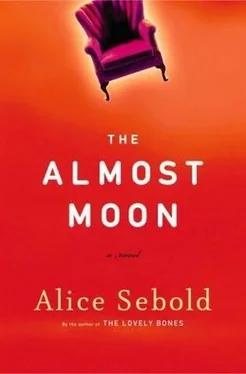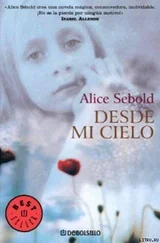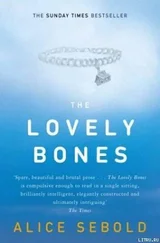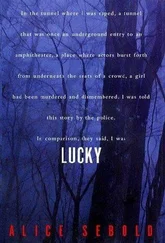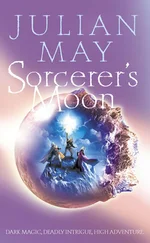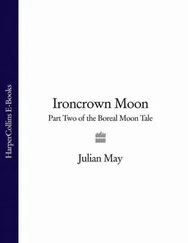“Remember?” I said, nodding toward the steel buildings.
“I just wanted to get in because they were keeping us out,” Hamish said. “I wasn’t going to steal anything.”
“A Toyota four-by-four, huh?”
“Helen, judge? Helen never judges. She loves everything!”
“Bitch?” I asked.
“Grade A.”
“Who would want less?” I said, laughing.
“That’s why Dad sent me to Valley Forge,” he said after a moment had passed. And my heart saw Hamish in his most difficult years. How he had tried to make his father happy and repeatedly failed, how when the three of them came to dinner at my house, he had made a point of sitting at the very edge of his chair, “like real soldiers do,” and how he’d beamed as he passed the lamb chops to Emily. “You’re not a real soldier,” his father had said, heaping mint jelly on his plate as an awkward silence descended on the table.
On the other side of Vanguard Industries was the remnant of a town established in the years before the Revolutionary War, with additions being made sporadically after that until the end of the 1800s. Only seven buildings remained, and these were all on one side of the road. Those on the opposite side had been washed away in the same storm that revealed the great mother lode of gravel that comprised Lapling Quarry.
Everything in the small town was closed as Hamish and I cruised past. The still-functioning general store, with an attached tavern that served only Schlitz, had shut down at eight p.m. Through the windows, I saw the low lights on over the bar, and Nick Stolfuz-my age and the only son of the owner-mopping up.
At the corner of the boarded-up Ironsmith Inn, I hung a sharp right with the skill that came from years of retracing the same near invisible shortcuts.
It was on a drive with Natalie that I discovered the view of the Limerick nuclear plant. It was during a long, humid afternoon in the early ’80s, when I was visiting my parents with Emily in tow. Sarah had stayed in Madison with Jake.
Every time I came home to Pennsylvania from Wisconsin, I would call Natalie, and we would go for long drives during which neither one of us would talk. It was our way of being alone without being alone, and it provided a justifiable excuse, to my mother, to Jake, to Natalie’s husband, to get away for a little while from the emotional hotbeds that were so benignly labeled “domesticity.”
We would purposely set off to get lost together. We would dead-end on old farm roads that hadn’t been used for years or find ourselves in isolated churchless graveyards, our feet sinking into the gaps of air left by the only frequent visitors-the moles. Once lost and outside the car, wandering, we would easily separate, trusting that we would find each other again. If I looked for her, I might come up behind a long-dead chestnut tree and hear her crying. In those moments, I would feel the cords of my upbringing pulling me back. I had not been raised to hug or to comfort or to become part of someone else’s family. I had been raised to keep a distance.
As I drove by the chicken coops and dark backyards and then hit the old keystone tunnel that separated the partial town from the rangy farmland and incipient suburban development on the other side, I noticed that Hamish had fallen asleep. His head nodded on the stem of his neck, and I saw no reason to disturb him. Judging Natalie as my mother had judged me was, I felt like telling her son, just my ass-backward way of showing love. I’d spent my life trying to translate that language, and now I realized I had come to speak it fluently. When was it that you realized the thread woven through your DNA carried the relationship deformities of your blood relatives as much as it did their diabetes or bone density?
Over the past ten years, Hamish had been brought in for various jobs around my mother’s house. After anything Hamish did, from installing a sprinkler system that kept the hedges and ivy watered along the curb to once wedging himself into the smallest crawl space to rescue a feral cat, my mother had rewarded him with food. I would arrive in the afternoon to see how things had gone and find him sitting at the dining table, surrounded by the tins of cookies that were my mother’s contraband.
Once, when my mother had gone back into the kitchen to, grudgingly, I felt, bring me a cup for tea, Hamish had seen the expression on my face.
“She told me you used to have problems with your weight.”
He held out the tin of fudge, which, as my mother aged and I assisted at the helm, had become grainy with sugar.
“No, thank you, Hamish,” I said.
“More for me!” He placed an entire square of fudge in his mouth, then winked at me.
I remembered taking the girls to various toddler parties held on the other side of the keystone tunnel. I would stand in the kitchen with the mothers, wondering what demonic communal mind created games like bouncing up and down on balloons until each child broke theirs, fell on the floor, and then ran to an appointed place to be showered with candy. Once, I had been beckoned in the middle of the night by the clipped voice of another mother. Emily had wet the bed at a slumber party. When I arrived to pick her up, she was sitting alone in the hallway on a rubber dog mat with jam in her hair. And while Emily pissed, Sarah hit. She kicked. She called the other children Fat Assholes, Big Babies, and her favorite, Jerk Bastards. The two of them reminded me of polarized Scottie magnets.
I looked over at Hamish and found myself wondering about a man who chose never to leave home. This choice seemed an unwise one to me, and yet, ultimately, it had been the one I too had made.
The car took the familiar loft of the final hill, and we rose up above the houses where Sarah had acquired a scar on her forehead from the deep digging nails of Peter Harper, and Emily had her first kiss on the brown plaid couch of a high-school saxophone player. I turned off the headlights and cruised, in the dark, over to the side of the road, then shut the engine off. Hamish’s head jerked back against the seat. His eyes flickered open, then closed again.
Since they were first built, the Limerick nuclear towers, lit up in the distance, had become an ominous presence. So much encased power. The large white udders cut off and opening out like craters.
I sat in the car with the sleeping Hamish and looked out over the rolling farmland and past the treetops backlit by the lights surrounding the towers. Natalie and I had talked of taking a field trip to the plant to see how close we could get, but the plan never came to anything. It seemed we had silently and mutually agreed that this distant image was best, that the reality of the thing could not help but be disappointing. We had always called this view the “future that was no future.”
When I’d found out I was pregnant with Emily, I had called my father at his office. I had been to the student health center in Madison and taken a blood test. The nurse who called with the results recommended that I sign up to receive counseling on birth control. I sat in a circle of other girls, some of whom were pregnant and others who had had a close call, and found myself the only one smiling. I wanted it-her, him, whoever was inside me who was one part Jake and one part me.
“Not everyone wants a child so young,” my father said. “I am happy, Helen. Is Jake?”
Jake sat at our rickety dining table, silently offering me support.
“Yes.”
“Girl or boy?” he had asked me. “Which would you prefer?”
“It doesn’t matter, Dad. I thought about it, but I don’t care either way.”
“Then I’ll selfishly say I’d love a granddaughter. It would be like having a little Helen to visit us.”
Next came the call to my mother. When I rang the house, I could hear KYW in the background. It was an all-news station she listened to throughout the day. Bulletins of murders and fires and peculiar deaths.
Читать дальше
